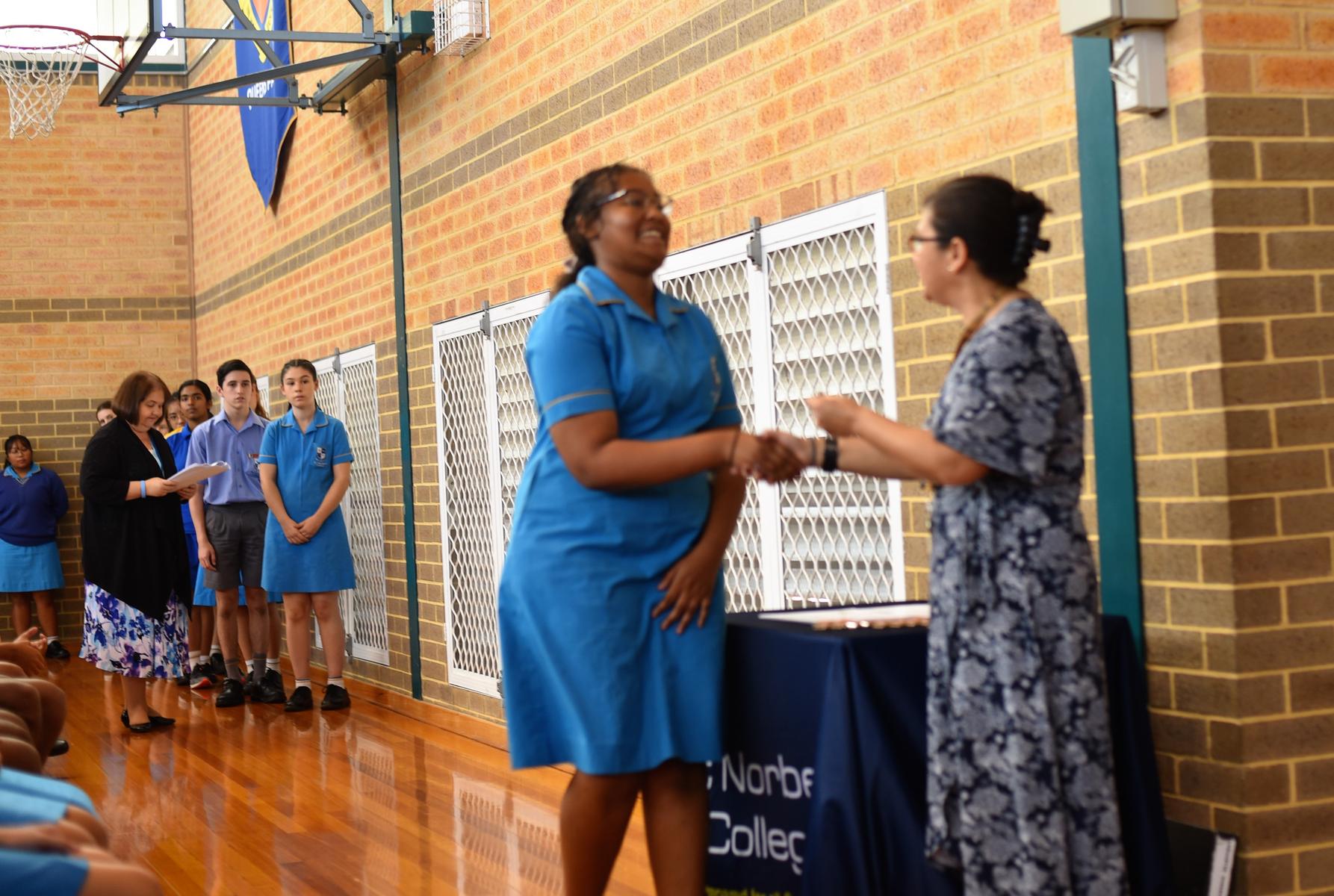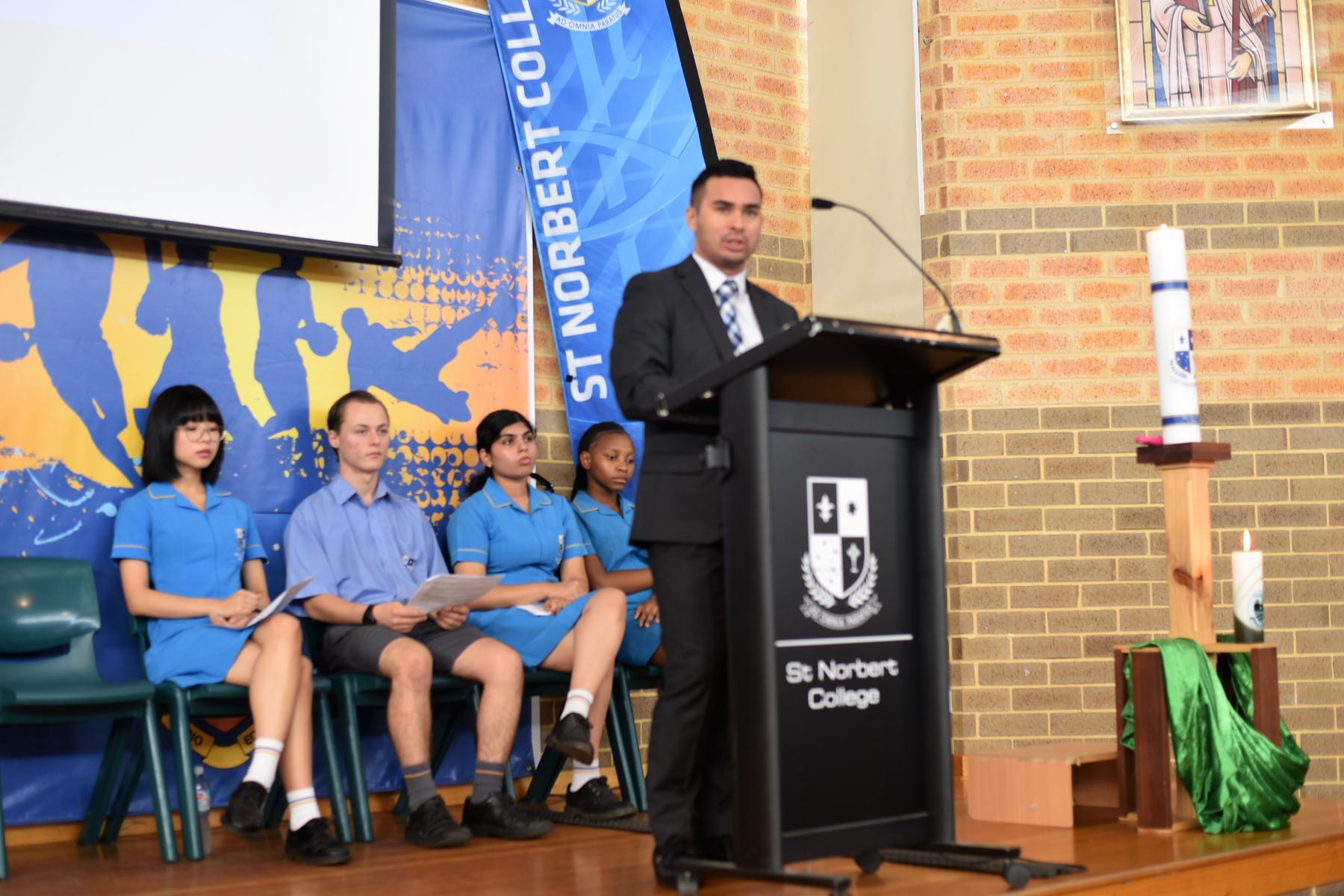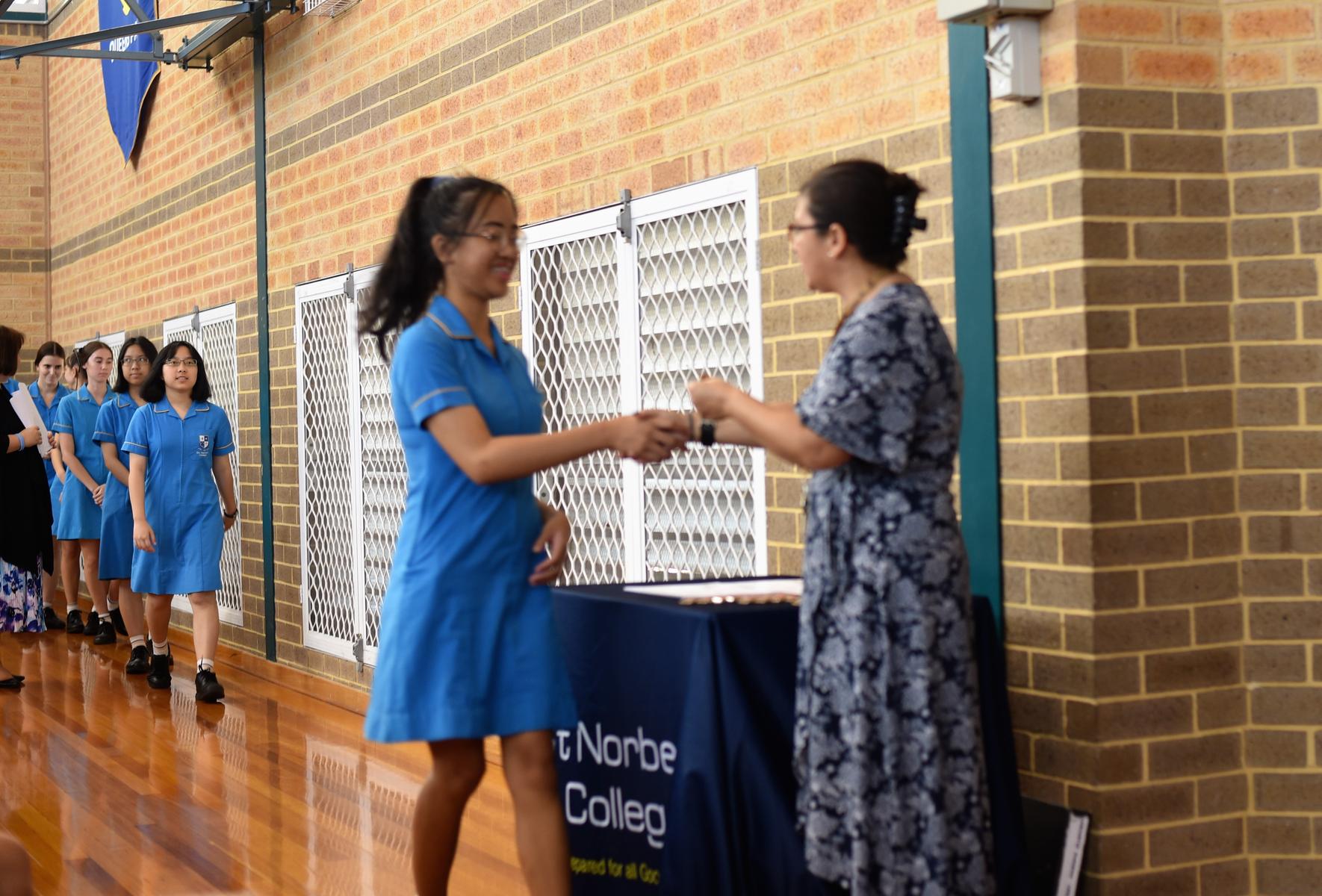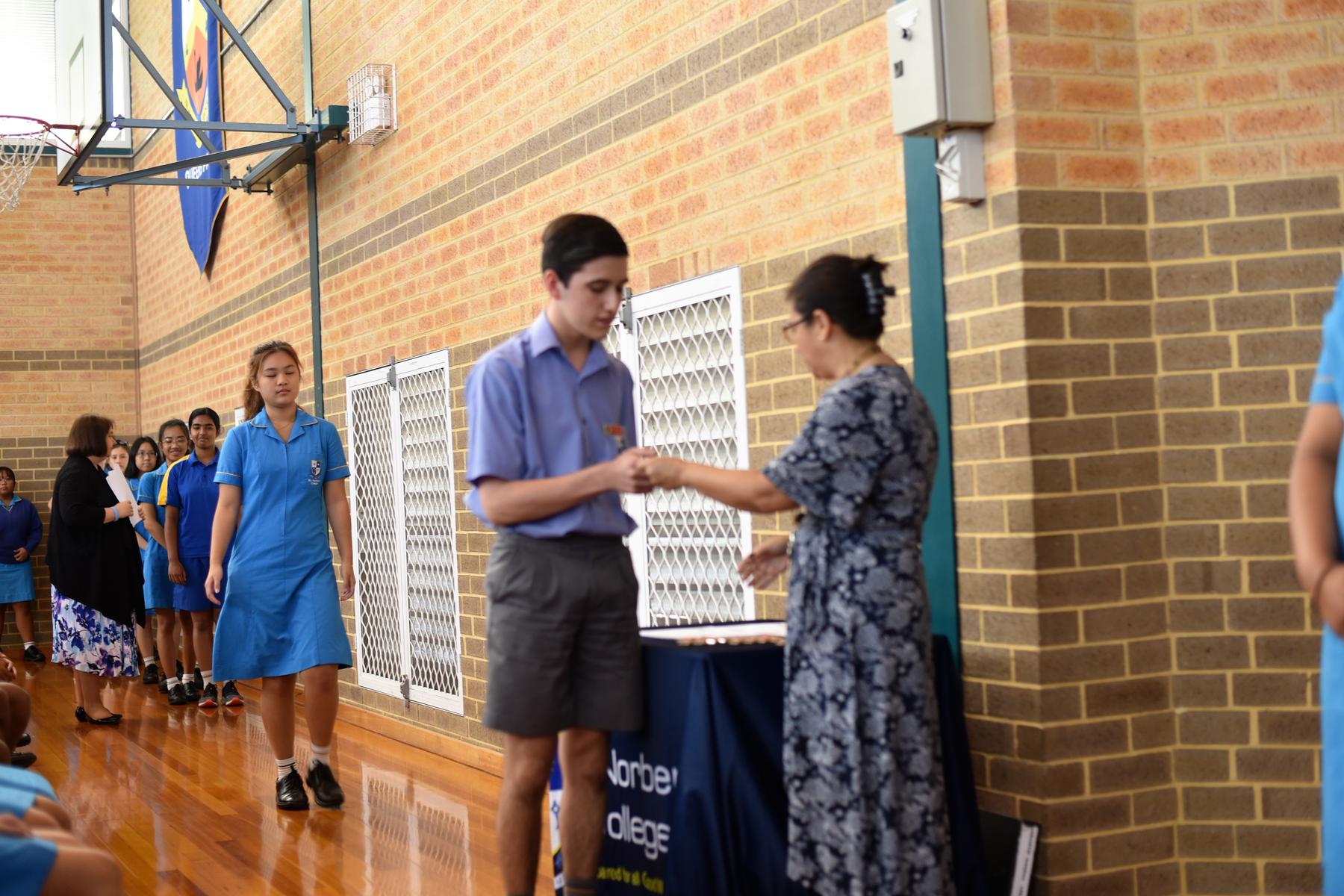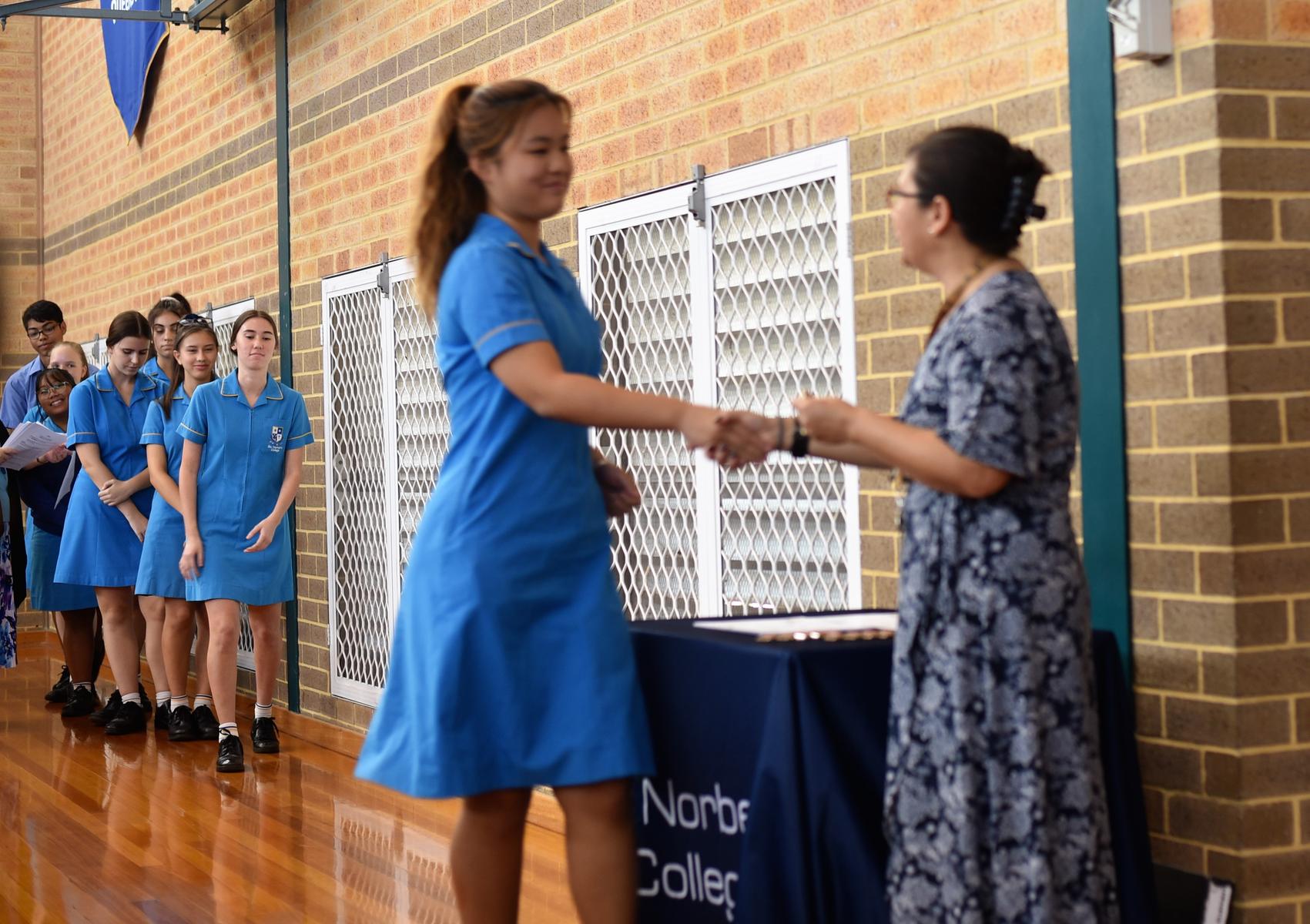Dean of Studies
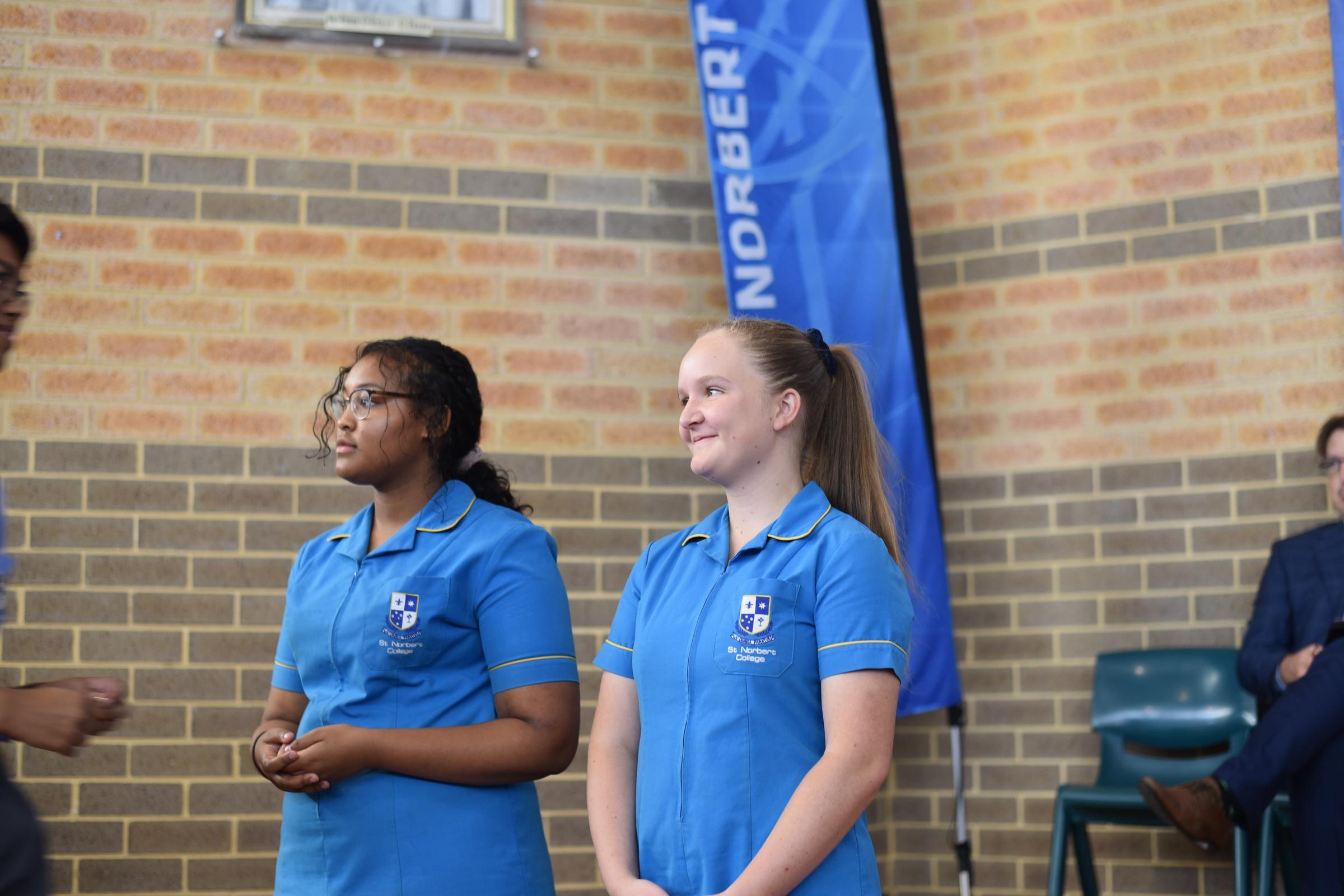
STRATEGIES FOR SUCCESS
In conjunction with the St Norbert College Parent Committee, a seminar was recently held at the College on “Strategies For Success – Building foundations in and through school to achieve goals in life.”
The seminar focused on five strategies that can be implemented easily and immediately. These include:
Strategy One: Find opportunities to seek the help and support of others.
Strategy Two: Do the hardest thing first.
Strategy Three: Deep learning requires a combination of practice and effort that is repeated often.
Strategy Four: Sampling different activities and interests develops new strengths and new skills.
Strategy Five: Big goals start with tiny habits and routines.
In each of these strategies, the value of making a start, maintaining the effort and holding yourself accountable to someone else helps maintain the motivation, and ultimately helps to achieve more. Some of the practical tips that are incorporated in these five strategies includes:
- Find opportunities to be a part of group study (and alternate between individual and group study)
- Find others that are doing the same courses and subjects and celebrate the success of each other in order to motivate each other.
- Review your homework and study plan every week, and plan around the other weekly activities and requirements.
- Co-design your study plan with a trusted adult – as you experience success with your plan, take over the responsibility for the design of it
- Personalise your study plan into ‘bite-sized’ chinks of time (30 – 45 minutes), adopt an approach of deliberate practice and set goals that are challenge and realistic – these are designed to ‘stretch’ your abilities.
- Create a distraction-free study space, focus on a single task/topic/subject in each ‘block’ of time.
- Create a new and small habit that can be performed with minimal effort every day until it becomes second nature.
- Track your progress of this tiny-habit – what gets measured gets done.
- Increase your micro-habit by approximately 10% after two weeks.
At the end of the seminar, a commitment statement was provided in the booklet for participants to take away and begin. This commitment requires three questions to be answered: What is one thing that I want to change right now? What is one strategy that I would like to practice? How can we help each other?
By taking the time to answer these questions, students (and adults too) can start to change their mindset towards greater success with achieving their goals.
ARTS HONOURS
At the recent College Assembly, 18 students were awarded Honours in the Arts. The Arts Honours are awarded to Year 12 students in recognition of excellence and commitment their chosen field (Music, Dance and Drama) over a number of years.
Music Honours – Commitment to one of more ensembles for at least five years, as well as maintaining excellent attendance, punctuality, leadership, performance and contribution to these ensembles. Students are also eligible if they receive three Outstanding Certificates or the shield for Outstanding Performance in a solo or duet at the Catholic Performing Arts Festival.
Dance Honours – Awarded to a student who is appointed Captain of either the Senior Dance Team or Hip Hop Crew, or has been a member of a College Dance Team for at least five years. The student has also maintained excellent attendance, punctuality, leadership, performance and contribution to the team.
Drama Honours – Awarded to a student who is appointed Senior Drama Captain or has been a member of the Drama Club for at least three years. The student has also been involved in at least two College productions and assisted with other productions.
Congratulations to the following students:
MUSIC
Regina Ndossi; Ariannah Tilli; Jordan Cirillo; Elicia Yii; Patrick Osias; Licia Benedict; Sasha Bitao; Elsa Tan; Selina Tan.
DANCE
Elicia Yii; Patrick Osias; Teagan Heron; Annissa Buckby; Danielle Vandenberg; Nicole Dobkowski; Ella Grady; Jen Hannah Darang
DRAMA
Regina Ndossi; Courtney McCrostie; Dimitri Laboudeuse; Shakira Pezzali
NAPLAN Online
In 2020, students in Year Seven and Year Nine are required to complete the National Assessment Program – Literacy and Numeracy (NAPLAN) online. NAPLAN is made up of two assessment areas: literacy and numeracy. The literacy assessments are comprised of tests in reading, writing and conventions of language. The reading tests are designed to assess a wide range of abilities.
For the online test, students read a range of text types on a computer or device and answer questions about the texts on screen in a variety of online item formats. All students are required to complete a writing task, using a prompt or stimulus topic. The genre of the task is not be disclosed prior to the test period.
The writing test requires students to respond to either a persuasive or narrative writing prompt.
For the online test, the prompt is shown on screen and students type their responses.
Criterion-referenced marking rubrics are used to assess students’ writing. The same rubrics are applied to all responses, both handwritten and typed. This enables comparisons to be made across year groups and topics, and growth to be measured.
The Conventions of Language test comprises spelling, grammar and punctuation.
For the online test, students spell words in an audio dictation task, identify and correct spelling errors, and answer grammar and punctuation questions in a range of online item formats.
The numeracy assessment area includes:
- Number and Algebra
- Measurement and Geometry
- Statistics and Probability.
The test for students in Years 7 and 9 has two sections. In the first section, calculators are not allowed. In the second section, students can access an online calculator, ruler and protractor. Students in all year groups can turn on an audio player to hear the questions read aloud, if they wish.
The NAPLAN public demonstration site can be accessed for more information and to go to practice questions via this link: https://www.nap.edu.au/online-assessment/public-demonstration-site
For additional support and preparation, students may also access the literacy and numeracy workshops offered by the College. Please contact Ms Penny Mulley (Head of English) or Mrs Colette Miranda (Head of Mathematics) for more information regarding the workshops.
Mr R Dowling (Dean of Studies)

